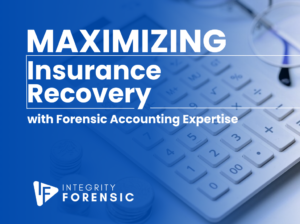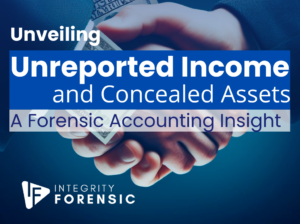Embarking on a unique exploration, we uncover an unexpected alliance within the realm of financial investigations – the intriguing connection between forensic accounting and psychology. This dynamic partnership unveils a multidimensional approach that delves into the depths of human behavior, driving financial intricacies. Join us as we unravel the captivating blend of these distinct yet harmonious disciplines and the invaluable insights they offer to seekers of clarity and truth.
Forensic accounting traditionally revolves around numbers, data, and analysis. However, psychology introduces a new dimension by focusing on human motivations, decision-making processes, and behavioral patterns. This combination enhances the investigative process, enabling professionals to comprehend the “why” behind financial irregularities.
Fraud often leaves a trail of hidden clues that only a trained eye can spot. By incorporating psychological insights into forensic accounting, investigators gain a deeper understanding of red flags. Signs of deceit, subtle changes in behavior, and inconsistencies in statements become more apparent, leading to a more effective detection of fraud.
A fraudulent act isn’t just about manipulating financial figures; it’s rooted in human motivations. Psychology assists in unraveling the underlying motivations behind financial misdeeds. Whether it’s personal gain, desperation, or circumventing pressure, understanding these motives aids in building a comprehensive case.
Interviews are a crucial component of financial investigations. Integrating psychological principles into interviews enhances the ability to extract information effectively. By reading body language, detecting subtle cues, and adapting questioning techniques, forensic accountants can glean valuable insights that traditional methods might overlook.
Psychological biases can impact financial decisions. By recognizing cognitive biases such as overconfidence, confirmation bias, or the framing effect, forensic accountants can analyze financial data with a critical eye. This nuanced approach uncovers hidden inaccuracies and exposes potential misrepresentations.
In cases involving financial wrongdoing, psychology aids in creating comprehensive profiles of involved parties. Understanding their psychological makeup, personality traits, and social influences offers a holistic view. This insight can potentially predict future behavior and guide investigators in their pursuit of truth.
Forensic accountants armed with psychological insights are better equipped for negotiation and mediation scenarios. By grasping the motivations and emotions of parties involved, they can navigate tense situations with empathy and insight. This can lead to swifter resolutions and more amicable outcomes.
Presenting complex financial data in a courtroom can be challenging. Combining forensic accounting with psychological understanding enhances the ability to communicate findings effectively. Clear explanations, coupled with insights into the human element, make complex financial matters more relatable to judges and juries.
To summarize, the integration of psychology and forensic accounting transforms investigations from mere number-crunching to a comprehensive exploration of human behavior. This paradigm shift enhances the accuracy of findings, deepens understanding, and ensures a holistic approach to financial investigations. By harnessing the power of both disciplines, professionals offer a richer and more profound perspective that serves as an invaluable asset to those seeking truth, justice, and financial clarity.
At Integrity Forensic, we have a team of experienced forensic accountants to assist you. Call now for a free consultation: 855-673-9999 or send us a message at questions@integrityforensic.com.





